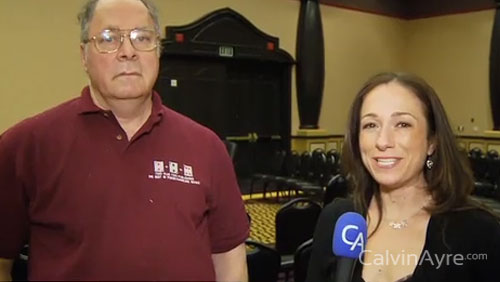Two plus Two forum publisher Mason Malmuth talks to CalvinAyre.com’s Rebecca Liggero on how the gamification of poker can attract recreational players.
How can poker attract new players? Mason Malmuth has several ideas.
Malmuth, owner and publisher of Two plus Two poker forum, said one of the things on the table is the idea of game theoretic optimal strategies coming in to No Limit Hold‘em.
“No Limit Hold’em is very susceptible to it,” Malmuth told CalvinAyre.com. “And the reason for that is you get a lot of heads-up pots in No Limit Hold’em, especially in the six max and shorter games. So one of the ways to fix that is to bring back more Limit Hold’em, where you tend to get more multi-way pots, and games like seven-card stud.”
Bryce Paradis and Douglas Zare of Stoxpoker.com explained that with the game theory optimal strategy, players can get the highest possible expected value as long as their opponent chooses the best counter-strategy possible.
“In a game of rock-paper-scissors, the GTO strategy is to choose randomly from an equal distribution of paper, scissors, and rocks,” Paradis and Zare explained in a forum post. “As a result, you must play paper, scissors, and rocks with equal frequency to guarantee ½ equity against all strategies.”
Meanwhile, Malmuth also discussed the issue of whether there is a need to prevent pro players from playing in smaller poker games.
“We’re not against professional players doing well playing poker. I mean, that’s how, my roots go back to that myself,” he explained. “But we also feel that there needs to be a proper balance in luck and skill in poker, and we think it’s gone out of whack, particularly on the Internet with the No Limit Hold’em games, and we think that’s a long-term bad for the future of poker.”
The Two plus Two publisher also has some advice for operators who want to make changes but fear backlash from pros in the forum.
“First of all, whenever changes are made, there’s always resistance, and poker is based on probability theory, and many things—particularly in poker—that are based on probability theory are actually very counter-intuitive to many people,” Malmuth said. “What seems right is often wrong, what doesn’t seem right is often right, and the first thing that has to happen is the operators need to begin to understand this stuff better and once they do, they’ll make the proper changes. Players might object to it, but in the long run, poker players will begin to see these were really the right changes and will help grow their poker wins.”
